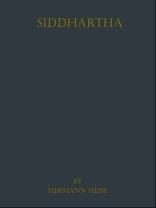It is the story of the quest of Siddhartha, a wealthy Indian Brahmin who casts off a life of privilege and comfort to seek spiritual fulfillment and wisdom. On his journey, Siddhartha encounters wandering ascetics, Buddhist monks, and successful merchants, as well as a courtesan named Kamala and a simple ferryman who has attained enlightenment. Traveling among these people and experiencing life’s vital passages-love, work, friendship, and fatherhood-Siddhartha discovers that true knowledge is guided from within.
O autorze
Hermann Hesse was born in Calw on 2 July 1877. Hesse is a German-Swiss poet and writer who was awarded the Nobel Prize for Literature (1946). Hesse’s best-known works include 'The Steppenwolf’, 'Siddhartha’, 'Peter Camenzind’, 'Demian’, 'Narcissus and Goldmund’ and 'The Glass Bead Game’.












